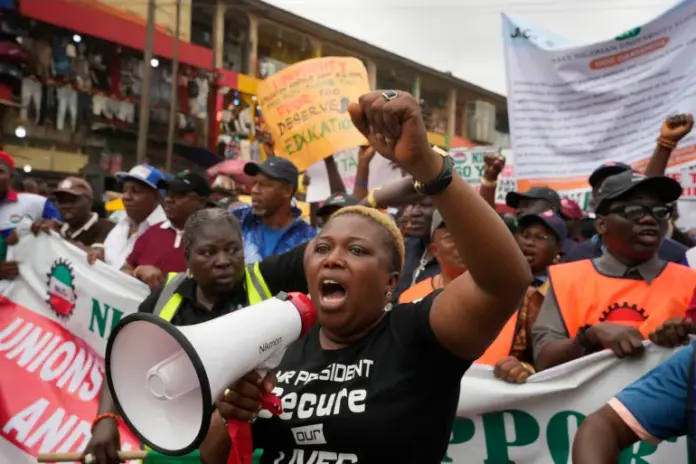Socialist always try to extend, to deepen and to generalise strikes so that with unity and solidarity we can win. In contrast, as was shown yet again with the recent general strike, trade union leaders want to contain our struggles and maintain their control.
The tripling of the price of petrol in June threw millions deeper into abject poverty. So our immediate demand was for a reversal in the price of petrol. To survive we also needed to add the following key demands:
• a decent minimum wage for all with annual increments!
• reversal of all hikes in tertiary level tuition fees!
• payment of arrears of salary and pensions in relevant states!
• end, of “no work – no pay”; pay the ASUU strikers & others from last year!
In contrast, the trade union leaders substituted ever smaller and more restricted demands. In place of the general increase in the price of petrol, we had the struggle restricted to Imo State. This was only one of a dozen or more states where the minimum wage had yet to be fully implemented and/or where there are significant arrears of salaries and pensions.
Unfortunately, Imo State was also where the trade union organisation was at its weakest and most divided. So the day that the NLC president was attacked was to have been the start of an indefinite strike. The general strike did not hold and was restricted to the electricity workers and briefly to the workers at the local airport.
So in place of the strike against the anti-trade union activities of the governor, as an example to governors in many other states, we had a strike over the attack on the NLC president.
The demands of the trade union movement had reduced from opposition to a generalised attack on our living standards to opposition to a physical attack on one comrade.
The two day strike by the NLC/TUC did prove once again that the trade unions can deliver a national general strike. The strike was still being built when it was suspended. It gained widespread support across the public sector and was also gaining support in the private sector, crucially in the electricity sector. If the trade union leaders had generalised the demands and stood their ground, so much more could have been won.
The strength of the trade unions depends on our collective action. However, good the trade union leaders are, their power resides in our mass support. We need to organise a rank and file trade union movement to organise this power. We need to support the leaders who lead robust strike action and criticise those who fail to respond adequately to the employer’s (government and private sector) attacks.
We also need to improve the quality of democracy in the trade unions. To be effective we need greater bottom up democracy. As much as possible, decisions should be taken by mass meetings or committees. We cannot afford to leave key decisions to be taken by our leaders. This makes it too easy for them to succumb to pressure or be settled or perceived to be settled.
We need to build and organise a rank and file movement across the labour movement in Nigeria. This is necessary to ensure that all the trade unions and their branches are as effective and democratic as possible.
The movement has to be led by individual trade union members in their individual capacity even where they are local or national officers of a trade unions. We need comrades in each state and in each trade union to build and lead the movement.
Please contact us if you are able to help.






